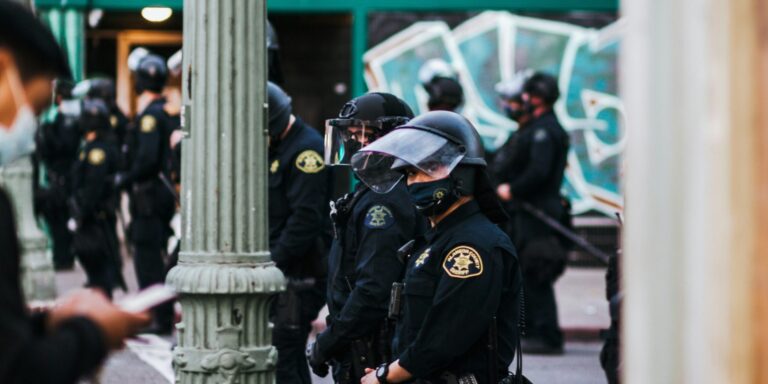LOS ANGELES — On June 8, 2025, President Donald Trump ordered the deployment of 2,000 National Guard troops to Los Angeles in response to intensifying protests against recent Immigration and Customs Enforcement (ICE) raids. The decision, made without the consent of California Governor Gavin Newsom, has ignited a national debate over federal authority and the use of military force in domestic affairs.
The protests erupted following a series of coordinated ICE operations targeting undocumented immigrants across Los Angeles. These raids led to the arrest of at least 44 individuals and sparked widespread demonstrations, particularly outside the Metropolitan Detention Center. Tensions escalated when David Huerta, president of the Service Employees International Union (SEIU) California, was injured and detained during one of the protests. Huerta was reportedly observing the raids when he was arrested for allegedly interfering with federal agents. He remains in custody and is scheduled for arraignment.
In a statement, President Trump justified the deployment by invoking a rarely used federal statute, 10 U.S.C. § 12406, which allows the federalization of state National Guard units in cases of insurrection or when state authorities are deemed incapable of maintaining order. “The lawlessness that has been allowed to fester in Los Angeles cannot continue,” Trump declared. “We are restoring order and enforcing the laws of our nation.”
Homeland Security Secretary Kristi Noem defended the federal response, criticizing Governor Newsom’s handling of the situation. “Governor Newsom’s failure to maintain control has necessitated our intervention,” Noem stated. “Any violence against our officers will be met with full legal consequences.”
White House Deputy Chief of Staff Stephen Miller characterized the protests as a “violent insurrection,” emphasizing the administration’s stance on strict immigration enforcement. “These actions are a direct challenge to the sovereignty of the United States,” Miller asserted.
Local officials have expressed strong opposition to the federal intervention. Governor Newsom condemned the deployment as an overreach of federal power, stating, “This is a politically motivated move that escalates tensions and undermines public trust.” Los Angeles Mayor Karen Bass echoed these sentiments, asserting that local law enforcement was effectively managing the situation and that the presence of National Guard troops was unnecessary.
Civil rights organizations and labor unions have also criticized the federal response. The American Civil Liberties Union (ACLU) announced plans to challenge the deployment in court, arguing that it infringes upon constitutional rights. “The use of military force against civilians exercising their right to protest is unacceptable,” the ACLU stated. SEIU California has called for the immediate release of David Huerta and condemned the treatment of protesters.
The situation in Los Angeles remains tense, with protests continuing and the National Guard maintaining a presence in the city. The events have sparked a broader national conversation about immigration policy, federal authority, and the rights of citizens to protest government actions.
As the debate unfolds, the nation watches closely, recognizing that the outcomes in Los Angeles may set significant precedents for the handling of civil unrest and immigration enforcement in the future.



